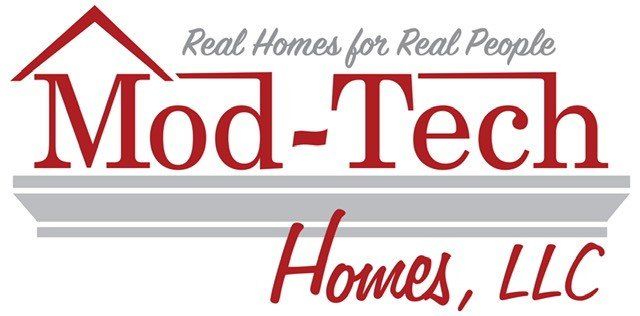Mod-Tech Homes FAQ
Have a question about modular homes? We have the answer. Check out these FAQs and give us a call today for more information!
-
What are the advantages of building a modular home?
The modular process is the same as traditional home building until the feasibility of permitting is established. Then, the modular process moves more quickly because the house is fully specified when ordered. After the options are selected and coordination is completed with the factory, installation starts and Mod-Tech Homes completes the home.
Another advantage to building modular homes is in the cost: once the homeowner makes selections, they are locked in at the factory. This protects against "price creep" as changes in specifications during construction (known as "change orders") are traditionally the most unpredictable variable. Also, we order your home at a set price and that is the price that is paid. There is less uncertainty for you and your bank.
-
What is modular?
A modular home is a custom-designed factory-built home assembled and finished on site. Assembly line production is incorporated into the building process to construct homes that are stronger, of higher quality, and more cost effective than traditional construction. The homes are then shipped via flatbed trucks to a site, prepared by Mod-Tech Homes with foundation and utility hookups in place. Mod-Tech's team of experts then completes what is commonly called the "B," or "button-up" work which usually takes 4-8 weeks from the beginning of the construction to the time the homeowner moves in. This significantly condenses the building process timeline over conventional construction and virtually eliminates weather-related delays, while simultaneously reducing the risk of mold and mildew problems and increasing energy efficiency. All of our homes can receive an energy star rating for the entire home for a small additional charge, a feature that is difficult and expensive with traditional construction. Here is more information to help you understand modular homes.
-
What about financing?
Banks and lending institutions make no distinction between modular homes and site-built homes. Modular homes are approved under conventional mortgages, FHA loans, MSHA loans and more. In fact, some banks realize that there is less risk inherent with modular homes and offer special programs that can save you additional money. We have several resources to assist you in the financing process. Banks that do modular lending love it because their risks are low and the projects are quick.
-
What does a modular home cost?
When you add the labor, material, and time savings inherent in the modular building process, you will find the price of a modular home to be 15-25% lower than a traditionally built home of similar quality. More importantly, you will continue to save money year after year, because modular homes are built extra tough so they can withstand shipping and craning onto the site foundation. This translates into lower maintenance and heating costs. Should you ever sell your modular home, you will realize the same resale values as other traditionally built homes in your neighborhood.
-
Is there a limited range of modular home styles to select from?
Absolutely not. Mod-Tech Homes’ designers customize all our homes and additions with our clients. There has never been a design concept we could not produce. The days of “fixed” designs are long gone.
Mod-Tech’s in-house CAD (computer-aided design) department uses Chief Architect, a cutting-edge design program that allows the customer to design the home in a virtual reality world. There, you can see the actual kitchen cabinets in 3D or experiment with options such as dormers, reverse gables, and farmer’s porches.
-
Why would someone choose to build a modular home as opposed to a stick-built or traditionally constructed home?
There are three primary reasons for clients to select modular building:
- Quality of Construction: Modular homes are constructed in factories, which are controlled environments, preventing the materials and the craftsmen from being exposed to harsh weather conditions.
- Length of Construction Process: Typically, modular homes are constructed in a 4-8 week cycle from foundation ready.
- Value: There are tremendous savings due to factory efficiencies, speed, weather impacts, and more.
-
Finally, why buy from Mod-Tech Homes?
We’re glad you asked. Our homes are designed, engineered, and assembled in a controlled environment in modern factories. We combine modern assembly line techniques with old-world pride and craftsmanship to produce the finest homes available. We are also the ONLY turnkey provider of modular homes in our service area. This means we handle your entire project: from permit through certificate of occupancy. We also take care of difficult permit situations, including conservation commissions and zoning variances.

Share On: